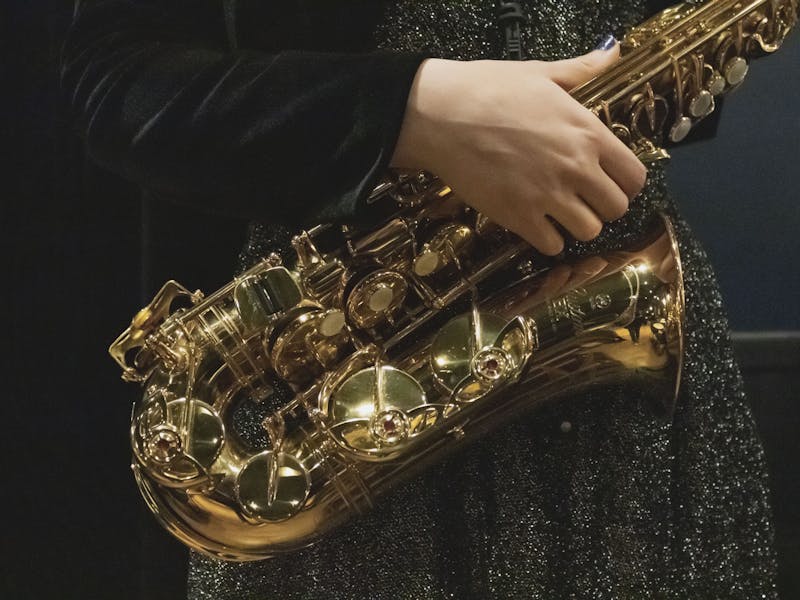**NAMES HAVE BEEN CHANGED FOR ANONYMITY
GREEK LIFE HAS BEEN A PART OF USC SINCE THE EARLY DAYS OF THE UNIVERSITY’S INCEPTION. AS THE STUDENT BODY HAS BALLOONED OVER THE COURSE OF THE PAST 100 YEARS, SO TOO HAS THE NUMBER OF STUDENTS WHO PLEDGE TO A FRATERNITY OR SORORITY. THESE DAYS GREEK LIFE IS AN ANALOGOUS COUNTERPART TO USC WITH OVER 26% OF THE STUDENT BODY IN A FRATERNITY OR SORORITY. IN THE CURRENT CULTURAL CLIMATE IT GOES WITHOUT SAYING THAT SUCH A SIZABLE PROPORTION OF A POPULATION UNDOUBTEDLY INCLUDES MANY LGBTQ+ PEOPLE. AS ATTITUDES TOWARDS THOSE IN THE LGBTQ+ FAMILY SHIFT TOWARDS A MORE LIBERAL STANCE NATIONWIDE, THE QUESTION IS HOW HAS GREEK LIFE, AN INSTITUTION SO ASTUTELY FOUNDED IN TRADITION, ADAPTED TOWARDS THE INCLUSION OF GAYS, LESBIANS, BISEXUALS AND TRANSGENDER PEOPLE?
Like most college experiences there is no one story that is illustrative of all, but it seems that through interviews with past and current students, including those who were closeted, out or just allies, Greek life is indicative of the hegemonic nature from which it was born.
George** graduated in 2016 and grappled with his sexuality for the for the first half of his college career. He dated girls sporadically, but never confronted his apparent sexuality until his junior year, and didn’t come out to his fraternity brothers until his senior year. “Sexuality is a very unspoken thing. It’s very much don’t ask don’t tell,” George says.
He came out to little fuss during the last semester. “I was on exec and people respected me. I guess because I wasn’t very in-their-face about it,” George says. Discreetness is a practice that many are familiar with in Greek life, closeted or out. When George came out and started dating a guy from Clemson he avoided taking him to fraternity functions, relegating their public interactions to pregames, parties and less formal occasions.
“They knew who he was. I never said ‘this is my boyfriend’ but they knew who he was when he would come to parties, but when it came to functions like semi-formals I just took one of my girlfriends,” George says.
While he’s glad that being gay didn’t draw a lot of attention to him, he mentioned that if he was more femme his acceptance would have been less than ideal. The alpha-male culture of fraternity life is arguably the most characteristic image of the society. Browse through the Total Frat Move Instagram for five minutes and you’ll see countless displays of strength or just blind courage. In most cases it’s this ideal of hyper-masculinity that is the root cause of homophobia in fraternities. The alpha-male culture of a heterosexually dominated group of men leaves little room for anyone that deviates from that image. Alex** is a third-year student involved with recruitment in his fraternity. “If you were to line up all the Greeks and take a look at them, in general, they’re white and at least appear affluent,” he says. “They’re probably more religious than the average USC student, and I think those three factors, unfortunately, seem to be at odds with LGBTQ acceptance for whatever reason.”
Male and female sexuality also seem to be at odds with each other, both culturally and in Greek life. Mary Shea Converse is the wellness chair of her sorority, and came out to her sorority sisters during her freshman year. Her reception was overwhelmingly positive she says, and has inspired a few of her sisters to come out to her in confidence. “Is it rude to say that men are more likely to be homophobes? I think hyper-masculinity is really bad in fraternities. The whole bro culture can be very toxic.”

Converse’s visibility has placed her in a valuable position amongst her sisters and peers. “For a lot of girls I’m the first gay person they’ve met, so they ask me a lot of questions,” she says. “If they say something offensive I’ll tell them they shouldn’t say that and I attempt to educate them.”
In terms of sexuality, there’s less educating to do, and more experiencing. Just because a brother is gay doesn’t mean he wants to sleep with his fellow brothers, and a sister’s sexuality is not to be treated as a phase. These types of preconceptions are easily broken down by sharing a space with LGBQ people. Where the education is needed is in that missing letter, T. As of now there are only three sororities that have issued official policies that admit transgender members: Kappa Kappa Gamma, Sigma Sigma Sigma and Delta Gamma. There’s massive amount of work to do to educate people on the importance of proper pronouns and dialogue surrounding someone’s transition.
People like Converse make up a very small unit of influence that could potentially shift Greek life towards a more socially liberal approach to its recruits, but the policies and large-scale influencers that one would expect are few and far between. Executive staffs have less influence over recruitment policies than the average person might think.
“The process is much more decentralized than people understand,” Alex says. “As to affecting change, it doesn’t come from a group of 10. I think in three years you’ll see maybe five fraternities that don’t care anymore, with two or three that will remain hard-lined and won’t change. Each culture is really different, so you’ll see change at different speeds.”
The recruitment process is the first representation for possible Greek life recruits, and it’s during this rigorous process that those who are out are faced with the reality of the heteronormative landscape they’re trying to enter, while those in the closet may attempt to conceal anything that would give their potential brothers or sisters a clue to their sexuality.
“Well you know it’s all case by case. In general, it’s not accepting,” Alex says of the recruitment process. “It’s that way not because people are worried about having a gay brother, it’s more ‘if we take this guy and people know we took this guy, that damages our reputation.’ And i think that’s really what limits it, which is terrible.”
The line of defense lies in the pledging and recruitment process. The university announced over the summer that it would explore the possibility of ending pledging in an effort to make the Greek Village a more constructive environment. USC spokesman Wes Hickman told The State in June that the university is aware of the “negative behaviors associated with pledgeship,” and while logic would dictate that doing away with a process that gives substantial grounds to discriminate would open the door to those who had been shut out, some aren’t so sure.
“Well that would really turn the whole process on its head,” Alex says. “It would matter how the university enforces it because there’s going to be some kind of ringing-out process of the mass public. That may happen in a formal university setting, but if that’s not allowed then it will just happen somewhere else.”
As cultural attitudes and acceptance levels shift towards a more accepting society it’s hard to find where this discrimination comes from. The average millennial demographic sample contains a number of people who have adopted accepting, or at the very least, indifferent attitudes towards gay and lesbians. The majority of individuals, even in the south, have changed their stances drastically on LGBTQ+ issues. So why has Greek life lagged behind for the most part? It seems their image-conscious presentation may be a large factor.
“There are a lot of guys and they have different views, so I know for instance one guy was pretty much out and everyone knew, and it was fine,” Alex says. “But I know on the other side of the coin during rush when we’re recruiting new members, if we know someone’s gay going into that and that gets raised as an entire group when deciding to let him in, it’s gonna hurt him. But the thing is, so would having acne, so would looking weird.”
It would seem that for Greek life to shed this persistent image of exclusivity and quiet discrimination, there would need to be a fundamental shift in the way it’s operated. Whether that shift comes from a no-pledge process or more direct policies for gay and trans-inclusive memberships or some other fundamental overhaul remains to be seen. As for now, change and acceptance is happening, albeit slowly.
“In general, these groups are all composed of college students and that’s the important thing to remember. They’re all just student-run organizations, and individual people in general are pretty accepting. The real trouble comes with this collective identity that people try and protect, and the notion that a homosexual person damages that, but equally an ugly person damages that, someone foreign, someone dumb. It’s all protecting that social status, and I think that’s the root of any kind of discrimination, and it’s bizarre to me.”



